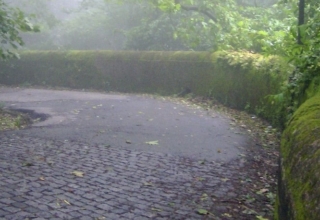
Personal Expertise: Opportunities and Challenges
Given the opportunities inherent in and risks associated with accessing personal expertise, we turn to the ways in which this most intimate form of expertise can be engaged to address several of the most important challenges that we are facing in our mid-21st Century life. We turn specifically to those challenges that we identified at the start of this essay. These are the challenges that arise when we are making choices, when we are expressing our opinion about something, and when we are seeking fully to understand how another person is seeing and living in the world. These personal and interpersonal concerns require each of us to attend from several internal sources of expertise. We must, in turn, attend slowly and critically to these sources of personal expertise—to ensure that they provide us with valid and useful advice. We now devote some time and attention to each of these challenges.
Choice and Slow Thinking
When we are making choices about what we believe and how we subsequently act on this belief (e.g. when we purchase something) then we can attend from an assumption of and aspiration regarding being free in arriving at the belief. As we have noted, behavioral scientists such as Danial Kahneman speak of the deliberative, slow thinking process that must accompany this reflective process if we are truly to be free in engaging our own personal expertise.
This reflection is critical, for instead of the heuristics being imposed by others, who are in authority (have power), we might be inclined to impose our own heuristics on ourselves. Put simply, each of us can escape from freedom (Fromm, 1941) by either complying with the externally imposed heuristics or quickly and uncritically grabbing onto our own favorite, energy-saving and thought-saving heuristic. It is indeed tempting to stay with the presumptive heuristic. However, at the moment when we resort to this heuristic and to fast thinking, we have forfeited the opportunity to access personal expertise. We fall away from our personal wisdom when we accept the first piece of expert advice that we receive or when we listen only to the loudest or most dramatically conveyed expertise.
Finding Voice
During the 1980s, Carol Gilligan (1982) and her colleagues at the Stone Center in Wellesley Massachusetts wrote about the developmental challenge associated with finding one’s genuine voice—especially as this voice is engaged in connected relationships with other people. While Gilligan is focused particularly on the challenges that women face in finding their voice, we would suggest that this is a developmental challenge, ultimately, for all of us. If we are to access our personal expertise then we must find what it is that we truly believe and that we can articulate clearly and in a compelling fashion to other people – particularly in a manner that furthers trust with other people. It is with this personal honesty that we can establish a deeply trusting and supportive relationship with another person. It usually takes an interplay between the deeply embedded values existing on our middle burners, along with the critical thinking and discernment found in our front burners to arrive at this honesty.
Download Article 1K Club















